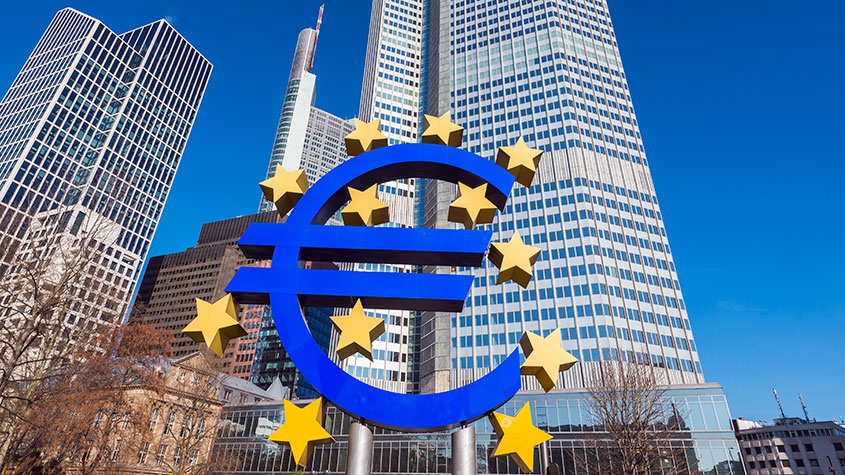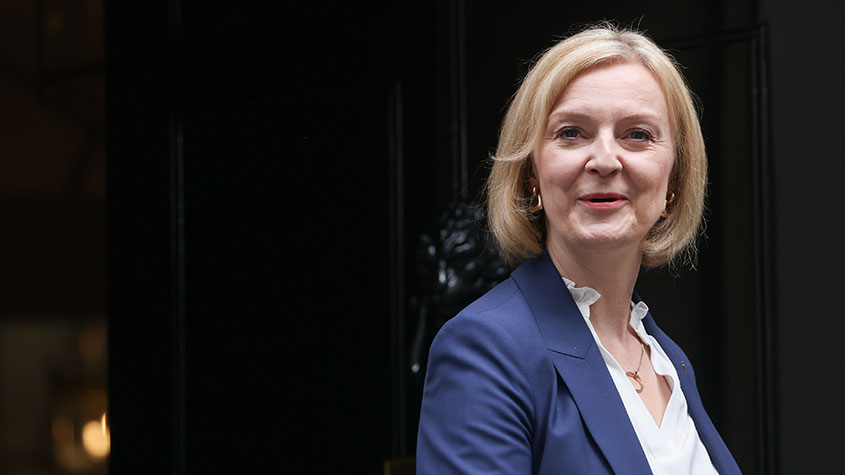Will Brexit lead to Scoxit?
The looming Brexit negotiations has breathed new life into the SNP's bid for Scottish independence. Matthew Partridge reports.

Get the latest financial news, insights and expert analysis from our award-winning MoneyWeek team, to help you understand what really matters when it comes to your finances.
You are now subscribed
Your newsletter sign-up was successful
Want to add more newsletters?

Twice daily
MoneyWeek
Get the latest financial news, insights and expert analysis from our award-winning MoneyWeek team, to help you understand what really matters when it comes to your finances.

Four times a week
Look After My Bills
Sign up to our free money-saving newsletter, filled with the latest news and expert advice to help you find the best tips and deals for managing your bills. Start saving today!

This week the Lords finally accepted a clean version of the Brexit bill, allowing it to receive royal assent, and giving Prime Minister Theresa May the ability to trigger Article 50. When this happens, "the legal process of divorce from the European Union will have begun... Brexit will suddenly feel real", says Gideon Rachman in the Financial Times. However, ignore any temporary "sense of certainty" this creates. "There are so many different variables involved that nobody sensible can be sure" what will happen. Even if both sides are prepared to compromise, "world events could radically change the context of the Brexit negotiations".
One such event could be Scottish independence. On Monday, even as the Brexit bill was being passed, the Scottish first minister, Nicola Sturgeon, made fresh demands for another referendum vote. As a result, "a historic day for our country" was "overshadowed by a dangerous new threat to our sacred Union", says the Daily Mail. Sturgeon's argument that May's apparent backing for a hard Brexit justifies a second vote is "one of the most risible of pretexts". In reality, "die-hard nationalists will find any excuse to resurrect their singular obsession: the breakup of the Union which has served our nations so well for the past 300 years". Quite, says The Sun. A re-run of the 2014 vote is "irresponsible, hypocritical... and bonkers".
However, the Scottish edition of The Sun is more ambivalent. Yes, the SNP must "explain how they plan to cope once Westminster cuts up the credit cards". But promises from Westminster of "an equal partnership" look "pretty hollow in the light of Brexit". Overall, "Scotland's open to being persuaded". Despite a lack of public enthusiasm for a second referendum, May's "apparent readiness to tolerate leaving without a deal", and "her rejection of any attempt to fight for access to the single market", have "played straight to the independence cause", agrees The Guardian. Her uncompromising stance may well lead to "Scotland's departure from the UK".
MoneyWeek
Subscribe to MoneyWeek today and get your first six magazine issues absolutely FREE

Sign up to Money Morning
Don't miss the latest investment and personal finances news, market analysis, plus money-saving tips with our free twice-daily newsletter
Don't miss the latest investment and personal finances news, market analysis, plus money-saving tips with our free twice-daily newsletter
Brexit is certainly a big enough change "to justify another vote", argues Bloomberg View. But Sturgeon is being overly hasty in suggesting holding it as early as late 2018.It would be "wise for Scotland to vote after the UK has actually left the EU", especially as Scotland "needs to know what terms the EU will offer". After all, "there'd be no automatic right of membership" and one thing's for sure "Spain's feelings on independence for Catalonia won't incline its government to welcome a smooth Scottish accession".
Get the latest financial news, insights and expert analysis from our award-winning MoneyWeek team, to help you understand what really matters when it comes to your finances.

-
 Should you buy an active ETF?
Should you buy an active ETF?ETFs are often mischaracterised as passive products, but they can be a convenient way to add active management to your portfolio
-
 Power up your pension before 5 April – easy ways to save before the tax year end
Power up your pension before 5 April – easy ways to save before the tax year endWith the end of the tax year looming, pension savers currently have a window to review and maximise what’s going into their retirement funds – we look at how
-
 No peace dividend in Trump's Ukraine plan
No peace dividend in Trump's Ukraine planOpinion An end to fighting in Ukraine will hurt defence shares in the short term, but the boom is likely to continue given US isolationism, says Matthew Lynn
-
 Europe’s new single stock market is no panacea
Europe’s new single stock market is no panaceaOpinion It is hard to see how a single European stock exchange will fix anything. Friedrich Merz is trying his hand at a failed strategy, says Matthew Lynn
-
 Britain’s inflation problem
Britain’s inflation problemInflation in the UK appears to be remaining higher for longer when compared with similar rich countries. Why? And when can we expect a return to normal? Simon Wilson reports.
-
 Eurozone inflation hits 10.7% in October
Eurozone inflation hits 10.7% in OctoberNews Inflation across the eurozone hit 10.7% in October. What does it mean for your money?
-
 A forgotten lesson on the dangers of energy price caps
A forgotten lesson on the dangers of energy price capsAnalysis Liz Truss’s proposed energy price cap is an ambitious gamble. But a similar programme in Spain ended up being a fiasco, say Max King and Tom Murley. Here, they explain why Truss’s plan could be doomed to failure.
-
 Don't be scared by economic forecasting
Don't be scared by economic forecastingEditor's letter The Bank of England warned last week the UK will tip into recession this year. But predictions about stockmarkets, earnings or macroeconomic trends can be safely ignored, says Andrew Van Sickle.
-
 The wolf returns to the eurozone’s door
The wolf returns to the eurozone’s doorEditor's letter The eurozone’s intrinsic flaws have been exposed again as investors’ fears about Italy’s ability to pay its debt sends bond yields soaring.
-
 Eurozone economy heads for paralysis
Eurozone economy heads for paralysisNews Record high energy prices, the threat of recession in Germany and squabbling in Italy's government has left the eurozone fighting fires on all fronts.